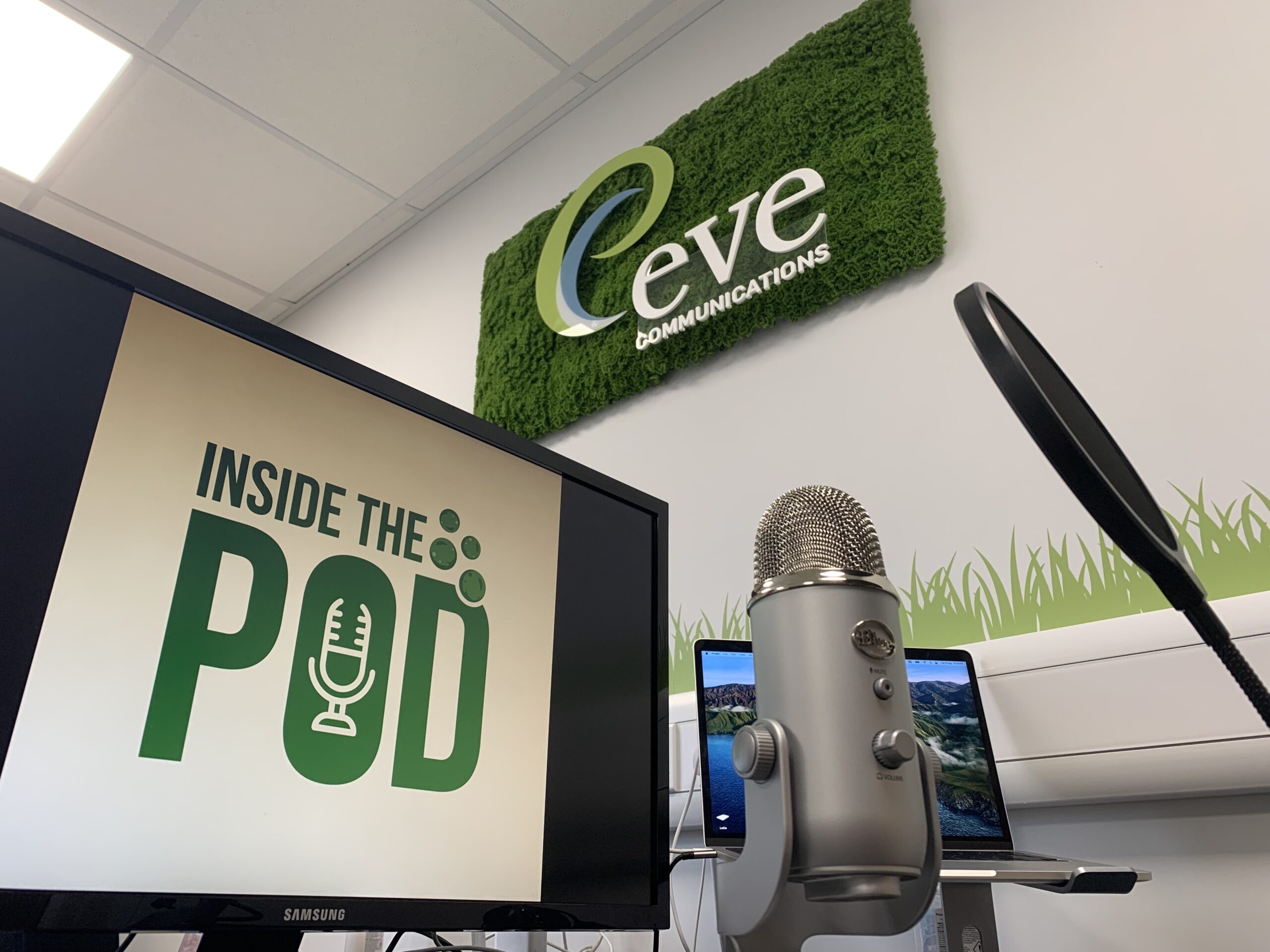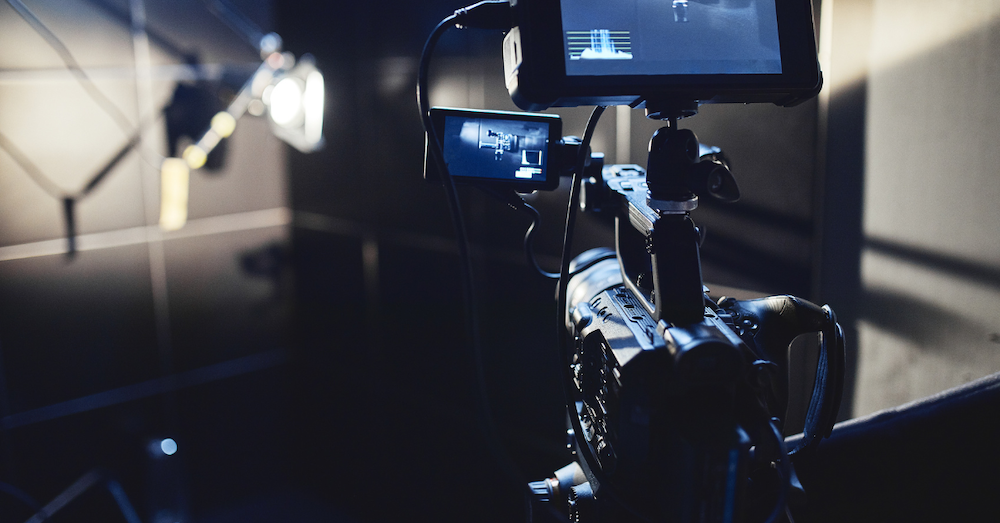Planning your own podcast. It seems that everyone and their nan has a podcast these days. They’re everywhere. Not only are there so many, but the variety is astounding – if you think of a topic, there is probably a series about it, even if maybe there shouldn’t be.
But why? Why is this format so popular? And I suppose the most important question should be, what does it take to make your own podcast?
But before we get into why a podcast might be good for your business, let’s have a look at some statistics. According to data collated by Listen Notes and Podcast Index, as of September 2023 there are more than 3m active podcasts. This equates to approximately 150 million individual episodes.
That is a lot. The sheer number might seem a bit daunting, but each and every episode has had at least one listener at some point. Quantifying what success looks like is important – are you looking for quantity or quality when it comes to your audience?
So, on to why podcasts are popular. I believe it’s how accessible they are; they can be listened anywhere at anytime. They’re on your phone, can play through a smart speaker, in the car or, of course, in the tractor cab while you’re working. This makes them a fantastic tool for reaching busy farmers.
Also, it is so easy for a listener to find the perfect podcast no matter their niche. For example if you wanted to find a 10-minute podcast summarising the weekend’s Premier League fixtures, there are plenty. Or, if you wanted to know about wine making in ancient Rome, I’m sure Spotify has you covered. Or maybe you’re intrigued by the UK pea and bean industry. I know for fact that you can find that because we make it!
Planning your own podcast
Now let’s get onto what we should really be talking about, which is planning your own podcast and how on earth you do it. Before I get any further, I must stress the most important part of making a podcast is that you plan it before you make it. It seems obvious but if you intend to make a podcast with no clear plan beforehand you are going to struggle. How are you going to talk about what you want to talk about if you don’t know what you’re going to talk about?
Planning your own podcast isn’t simply just figuring out what it will be about. It also involves research, coordinating when you’re going to record it – especially if it involves multiple presenters or guests – and deciding when you’re going to release your episode. I strongly advise that you plan multiple episodes in advance; it will make the process a lot easier for you rather than scrambling a few days before you’re due to record every time you go to make a new one.
The basics of creating an episode are very simple – plan it, record it, edit it, release it. Seems easy, doesn’t it? And it is if you’re making a one-person 15-minute podcast from your bedroom – that shouldn’t take you more than a couple of hours.
Podcast equipment
But, for a fully professional and polished podcast that lasts for an hour or two (there is no upper limit on episode length) featuring multiple topics and guests, it is far from easy and will take a lot of time and effort into putting out the best possible episode. Another major point is that the equipment and software that you use to create your podcast will affect how polished it is. The microphones you use are key, and the more powerful your editing software is, the faster and slicker you can make the end result. Studios are available to rent, but that brings your production costs up. It’s all about finding that balance between high-quality and cost-effective.
Styles of podcasts
When planning your own podcast one thing to also think about is its style – should it be polished, or can it be rough-and-ready? That entirely depends on the purpose of your podcast. If you are trying to get a specific message across or perhaps sell or product or promote an event, for example, you will want it to be much more polished and professional and should be the approach for podcasts by businesses. This would also apply if your aim were to inform even if you are not a business, for example if you’re focused on the news or if it is educational.
On the other hand, if your podcast is more light-hearted or personal or simply about something you’re interested in then it’s fine for it to be more rough-and-ready. In fact, I would argue that it would be better if it was – an unpolished podcast adds personality and engages the audience even more. This would apply if your podcast was, for example, about your favourite sports team, your life on the farm, or simply where you and your mates talk absolute nonsense for an hour.
Perfecting your podcast
Like with most things in life, there is always the possibility of something going wrong. The good thing is that issues in the recording, such as someone tripping over their words or a dog barking interrupts your recording, can usually be edited out of the recording. But when there are issues with the recording, such as bad sound quality, parts of or all the recording being damaged or going missing, then unfortunately the only solution is to re-record. There could also be issues with technology like your microphones for example, in which case you would simply have to replace them. It’s a pain but it’s all you can do.
The final stage of production is releasing your podcast. There are many different services you can use to get it into the world, one of which is RSS.com which is who we use for releasing Inside the Pod, the PGRO podcast. We are able to upload as many episodes as we want onto all of the main podcast providers including Spotify and Apple Podcasts.
Once you’ve released your podcast, that’s it, you don’t have to do anything else now that it’s out in the world, right? Absolutely not. You still have to promote the thing! Simply put, no promotion equals no listeners. We strongly believe that you will need to put as much effort into marketing your podcast as you did producing it, if not more, for it to be successful.
The easiest (and cheapest) way to promote your podcast is through your own social media channels. While advertising on your socials like Instagram and X will get the word out, it can only go so far. Sure, you could pay for X Premium (because apparently, we pay for social media now – thanks Elon) and have your posts seen by a wider audience, but there are other ways, more professional ways, to advertise to the wider world.
Press releases and paid-for advertising on relevant websites – or even other similar podcasts – is an option not to be overlooked.
Planning your own podcast – final word
Overall, on the surface as long as you have a microphone, some editing software, and an idea for your podcast, you should be good to go. But, when you want your podcast to become more professional and polished, that is when you will need to invest more time, more effort, and more cost into making the best possible podcast you can.
To find out how we can help to create your podcast, get in touch here.





